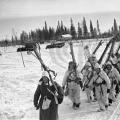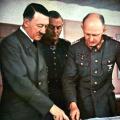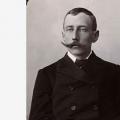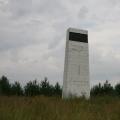With this article, you can easily tell or write about your school in German.
Questions about "School":
Wo liegt sie? - Where is she?
Wie ist sie? - What is she?
Welche Räume gibt es hier? - What are the offices in it?
Wo liegen diese Räume? - Where are these offices?
Wie kann sie sein? - What can it be?
Welche Schulfächer gibt es in der 6. Klasse? - How many subjects are there in the 6th grade?
Und in der 7. Klasse? - And in the 7th?
Was nehmen die Kinder in die Schule mit? - What do children take with them to school?
Welchen Stundenplan wünschen sich einige Kinder? - What kind of schedule do some kids want?
School story in German:
Das Gebäude meiner Schule liegt in der ____ Straße, das ist ein zweistöckiges Gebäude.
My school is located on _____ Street. This is a two-story house.
Vor dem Schulgebäude befindet sich ein Schulhof. Da gibt es einen großen Sportplatz. Auf diesem Sportplatz können die Schüler während der Pausen und nach dem Unterricht spielen und Sport treiben.
There is a school yard in front of the school. There is a large sports ground. On this playground, students can play or exercise during breaks and after class.
Durch die breite Eingangstür kommt man in die Vorhalle. Hier ist die Garderobe. Im Erdgeschoss befindet sich das Schuldirektorskabinett, die Bibliothek, die Speisehalle, der Sportsaal und das Artzkabinett. Im Erdgeschoss sind auch Klassenzimmer. Hier lernen die Schüler der ersten-dritten Klassen.
Wide entrance doors lead to the lobby. Here is the wardrobe. On the ground floor there is the director's office, library, dining room, gym and doctor's office. There are also classrooms where pupils of the first and third grades study.
Im ersten Stock befindet sich das Lehrerzimmer und viele verschiedene Klassenzimmer. Das sind Physik-, Mathematik-, Chemie-, Geschichte-, Biologie- und Fremdsprachenkabinette.
On the second floor there is a teacher's room and many different rooms: physics, mathematics, chemistry, history, biology and foreign languages.
Alle Klassenzimmersind groß, hell und gemütlich. Sie sind immer sauber. In den Klassenzimmern stehen Tische, Stühle, Bücherschränke. In jedem Kabinett hängt natürlich eine breite Tafel.
All offices are bright, large and comfortable. They are always taken away. The classrooms have tables, chairs, bookcases. A wide board hangs in each office.
Meine Schule hat gute Traditionen. Die Schulabende, Sportfeiertage, verschiedene Treffen sind immer sehr interessant.
My school has good traditions. School evenings, sports events and various meetings are always very interesting.
Zwei Dinge sollen Kinder von ihren Eltern bekommen: Wurzeln und Flügel.
There are two things that parents should give their children: roots and wings.
The history of the school began over 50 years ago. In 1987, on the basis of school number 52, school number 1220 was created with in-depth study of the German language.
Learning German is carried out from 1st grade and meets the objectives and goals of teaching a foreign language of the Federal State Educational Standard.
Our school is a participant in the project "Schools: Partners of the Future". The Schools: Partners for the Future (PASCH) initiative brings together about 2,000 schools around the world with a particular focus on links with Germany. The Goethe-Institut oversees about 600 ASPnet schools, included in the national education systems of more than 100 countries. ASPnet is coordinated by the Federal Foreign Office and is implemented in cooperation with the Central Office for Schools Abroad, the Goethe-Institut, the German Academic Exchange Service and the Pedagogical Exchange Service of the Permanent Conference of Ministers of Culture and Education.

On the basis of the school is carried out free preparation and delivery international exam DSD(Das Deutsche Sprachdiplom der Kulturministerkonferenz). The German Language Diploma is the only school exam in German as a foreign language recognized by German universities. Pupils 9, 10, 11 classes get the opportunity to successfully prepare and pass exams DSD I (language proficiency level A2 / B1), DSD II (language proficiency level B2 / C1). First stage diploma DSD I entitles you to admission to university preparatory courses Germany. Second stage diploma DSD II gives the right to direct admission to university.
- Curators: Yashkova O.S. and Matthias Fülling (program teacher, native speaker)

More than 30 years old school exchange program with German students from 2 large cities: Flensburg (Fördegymnasium) and Rheine (Kopernikus-Gymnasium). The program consists in the complete immersion of the child in the culture of the target language. Schoolchildren live in families, become a full-fledged part of it. School exchange is an effective method of learning a foreign language. This helps not only to improve knowledge in grammar, phonetics, enrich the vocabulary, but also to learn a lot about the culture of the people, their customs, traditions, history, which are inextricably linked with the language itself, its historical development. In addition, such exchanges help to get rid of stereotypes that interfere with intercultural communication, and, consequently, language acquisition.
- Curator: Yashkova O.S.
- Dates of travel: autumn (two weeks in Germany with a host family) and spring (meeting of students from Germany, their acquaintance with Russia, living with a family that participated in the school exchange program)
The students of our school have repeatedly become prize-winners and winners district, city and regional Olympiads and competitions in German
Possibilities for the optional study of the German language:
- Grade 1-2 - "Puppet Theater". Lecturer: Sorochkina T.N.
- Grades 5-9 - "Theatrical foreign". Lecturer: Streltsova E.I.
- Grades 1-4 - "Fascinating German". Teacher: Brusina L.E.
- Grades 5-9 - “Experts of the German language”. Teacher: Brusina L.E.
- Grades 5-6 - "Geography in German". Teacher: Mikhailova S.S.
- Grade 8-9 - "Geography of Germany". Teacher: Mikhailova S.S.
- Grades 10-11 - "Country Studies". Teacher: Yashkova O.S.
It is difficult to study on your own, there is not enough time, it is too far to go to a language school or it is not in a small town, and private tutors are too expensive. These are common reasons why you can't learn German effectively. Now online education is gaining great popularity among young people and adults. You can see the schedule of our courses and the prices for classes below, and now more about them.
So what is online education, how do the lessons go, how long do they last, how much do they cost, and how to enroll? Today we will tell you in our video answers and answer in detail many of your questions. The most important thing is the simplicity and cost of training. You always have quick access to all the materials and you can choose when and where to study. You can study from any city and from any country. All you need is a computer, smartphone or tablet with Internet access, and even a beginner who does not have technical knowledge can join the classes. An online school does not need to rent a large classroom, and teachers do not need to travel to work, so the school can save on rent and make the price of language courses affordable for everyone. After studying online, you will be able to: Move to Germany on a school or student exchange program. Get an Au-pair visa, fiance visa or make a social year in Germany. Find a job in IT, medicine or an engineer and apply for a salary of 3,000 euros or more in German-speaking countries. Read original literature and speak German when traveling or on work matters. Watch the video tutorial below.
Before each lesson, you will receive several emails reminding you about the lesson by e-mail. One letter one hour before the start and one more fifteen minutes before the start of the lesson. To enter the class, you just need to click the link in the letter. In your office you will see a description of the lesson, where you can check the quality of sound and video communication, and if you are ready to start studying, you need to click the button "go to the webinar." Blackboard with material, video with the teacher and chat with all students. This is what an online class looks like. In group courses, communication takes place through chat, and in individual lessons, the teacher and the student see each other and communicate via video. Individual lessons can be held at any time convenient for you. Our manager tells in detail about individual lessons in the video answer below.
Group courses are held twice a week in the evening. We have launched several courses to make it convenient for you to study in different time zones from different countries. After each lesson, an email will be sent to your e-mail with a link to the video of the lesson. The video can be watched if for some reason you were not present at the lesson or if you want to reinforce the material again. This can be done at any time convenient for you during the entire course. In addition, after each lesson, you receive your homework by e-mail. You can print it and make it in writing, or you can execute it directly on your computer. At the beginning of the next lesson with the whole class, you check your homework, as it happens, see the video below.
You can register for Deutsch Online courses below in the timetable. After registration, our manager will contact you and send you an email. To start studying, you need to sign a contract for educational services and pay the bill. We have students from all over the world, we can issue online invoices, and you pay by credit card. More details in the video.
We have intensive courses for beginners. These are levels A1.1, A1.2, A2.1, A2.2 and individual lessons from A1 to C1. In addition, we have launched special courses for those who want to go to university. This is a preparation for the TestDaF exams and DSH test. We also provide professional training in the following specialties: for doctors, engineers, lawyers, programmers and corporate training for company personnel. To find out about all courses and prices, you can watch the video answer below or after the video answer see the schedule of all courses and prices.
Do you want to speak German or improve your language skills? Sign up for our online course now!
 See the schedule of all courses immediately after this form, and here you can ask any questions about studying at the school, our manager will contact you as soon as possible.
See the schedule of all courses immediately after this form, and here you can ask any questions about studying at the school, our manager will contact you as soon as possible.
The leader of the rating was the "Master Klass" school (Novokuznetskaya metro station), which scored 9 points out of 10. The school employs some of the best German teachers in Moscow, and a unique testing system has been developed. The main training is conducted in groups, but individual courses are also offered, taking into account the characteristics and wishes of each student.
Further in the ranking of German language schools in the capital is the center of foreign languages "Star Talk" also with 9 points. More than 14 thousand students have successfully completed their studies at this school. "Star Talk" pleases students not only with the quality of education, but also gives gifts, for example, a foreign trip to a language course in Malta.
Another branch of the Master Klass school, located near the Kashirskaya metro station, closed the top three. Now German can be studied not only in the center, but also in the south of Moscow.
German courses in Moscow: rating, reviews, cost comparison, discount prices
German is the official language of Germany and Austria and one of the three official languages of Switzerland. German belongs to the West Germanic group of the Indo-European language family.
The recorded history of the Germanic languages begins with the first contact of speakers with the Romans in the 1st century BC. At that time and for several centuries thereafter, there was only one "Germanic" language, with minor dialectal differences. It is only after about the 6th century AD that the German language can be spoken about.
Altogether, German is the native language of over 90 million native speakers and is the sixth largest speaker in the world and one of the main cultural languages of the Western world.
Studying the German language gives advantages in many areas, for example, for studying or working in Germany or Austria, communicating with friends or colleagues from German-speaking countries, for improving your level of German and reaching a qualitatively new level of knowledge of the German language, which is not available when studying in ordinary courses.
The German language schools in Moscow presented on our website, in addition to preparing for international exams, offer the following types of training:
Intensive German course
... Conversational German
... German courses with a native speaker
... Business Business German Course
... German courses for children and teenagers
... German via Skype
Teachers of many Moscow schools presented on the site have international certificates that grant the right to engage in teaching activities.
German is fairly homogeneous; it differs in Germany, Austria, and Switzerland no more than written English does in the United States and the British Commonwealth. As a spoken language, German exists in many dialects, most of which belong to one of the dialect groups. The main difference between high and low German is the consonant-based sound system.
If you successfully pass the German language exam, you will receive a special diploma confirming your level of knowledge of the German language. This is important when applying to universities in Germany, Austria, Switzerland or Liechtenstein, and may also be a prerequisite for getting a job in the above countries.
The most common and demanded are the following German language exams.
Zertifikat Deutsch assumes that you are able to communicate in everyday life, read newspapers, correspond by e-mail, communicate actively, come up with ideas.
The Zentrale Mittelstufenprüfung assumes that you can read and understand complex texts, scientific journals and instructions, as well as be able to actively and quickly express your opinion and get involved in all kinds of discussions, including study and work.
Zentrale Oberstufenprüfung means understanding any text, the ability to formulate a thought based on differentiated primary sources and the ability to communicate with an almost perfect understanding of the interlocutor.
Kleines Deutsches Sprachdiplom indicates that you read the most complex non-adapted texts, speak the highest level of spoken and written German, and also have an excellent understanding of the culture, science and social life of Germany.
Großes Deutsches Sprachdiplom assumes native-speaker knowledge of German. Like the KDS, the GDS is exempt from the entrance exam for German universities. In some German-speaking countries, the GDS even gives the right to teach German.
Find the German courses that are right for you on our website and learn German at prices cheaper than calling a German school directly.
This time we will tell you where in Moscow you can learn German, hone your speaking skills, communicate with like-minded people and native speakers, play games, watch movies and discuss a variety of topics in German. And most importantly - all this is free or very cheap!
Franco-German circle in the I.S.Turgenev Library-Reading Room has been conducting German language classes for many years, aimed at maintaining and improving the level of language proficiency, speaking and reading skills. There are also meetings dedicated to the reading of classical literature in the original language.
When: check the schedule of classes by phone.
Where: Library-reading room named after I.S.Turgenev (metro Chistye Prudy / Turgenevskaya, Bobrov per., 6, p.1,2).
Price: is free. An annual membership fee is stipulated - 500 rubles.
Note: the recruitment of students is made before the start of the new academic year on the basis of testing.
Russian-German house in Moscow. It is a German cultural center offering, among other things, free German courses. First of all, ethnic Germans living in Russia and wishing to learn German are invited to the classes. For all others, there is a 10% quota. To become a student of language courses, you must fill out a form on the RND website.
When: twice a week (schedule to be confirmed).
Where: st. Malaya Pirogovskaya, 5 (metro Frunzenskaya).
Price: is free.
On this topic:
Libertarian Linguistic Lecture Hall ... German lessons are designed for learners with different levels of language proficiency. You can join groups at any time. To get to the lesson, you need to sign up on the Lecturer's page in social networks. There you can also find an interactive timetable and teaching materials for lessons.
When: for beginners - Wednesday from 18 to 20 hours, for advanced students - Monday, Wednesday from 19 to 21 hours, Saturday - from 11 to 14 hours
Where: for beginners - Hostel "Privet" (metro Kurskaya, Podsosenskiy per., 3, p. 2), bookstore of the magazine "Moscow"; for those who continue - Book (Arbat st., 20), on Saturdays - Library №187 named. Pablo Neruda (metro VDNKh, Prospect Mira, 180).
Price: for beginners - free of charge, for intermediate students - 200 rubles.
Note: you can get information about groups and levels, enroll in a group and find out the current schedule and venue of classes on the official page of the Lecture Hall on social networks.
Conversation clubMERGE . Every week, club members gather in a coffee shop to talk, discuss current and interesting topics, get to know each other and play board games in German. The communication time is not limited.
When: Saturday from 19 o'clock.
Where: Starbucks coffee shop on Paveletskaya (metro Paveletskaya, Kozhevnicheskaya st., 1).
Price: RUB 200
ESPlaneta Conversation Club holds language meetings with a native speaker every week for German learners. The program includes games for speaking practice, discussion, acquaintance.
When: on Sundays.
Where: Starbucks coffee shop on Serpukhovskaya (metro Serpukhovskaya, Stremyanny per., 38/3)
Price: RUB 200




